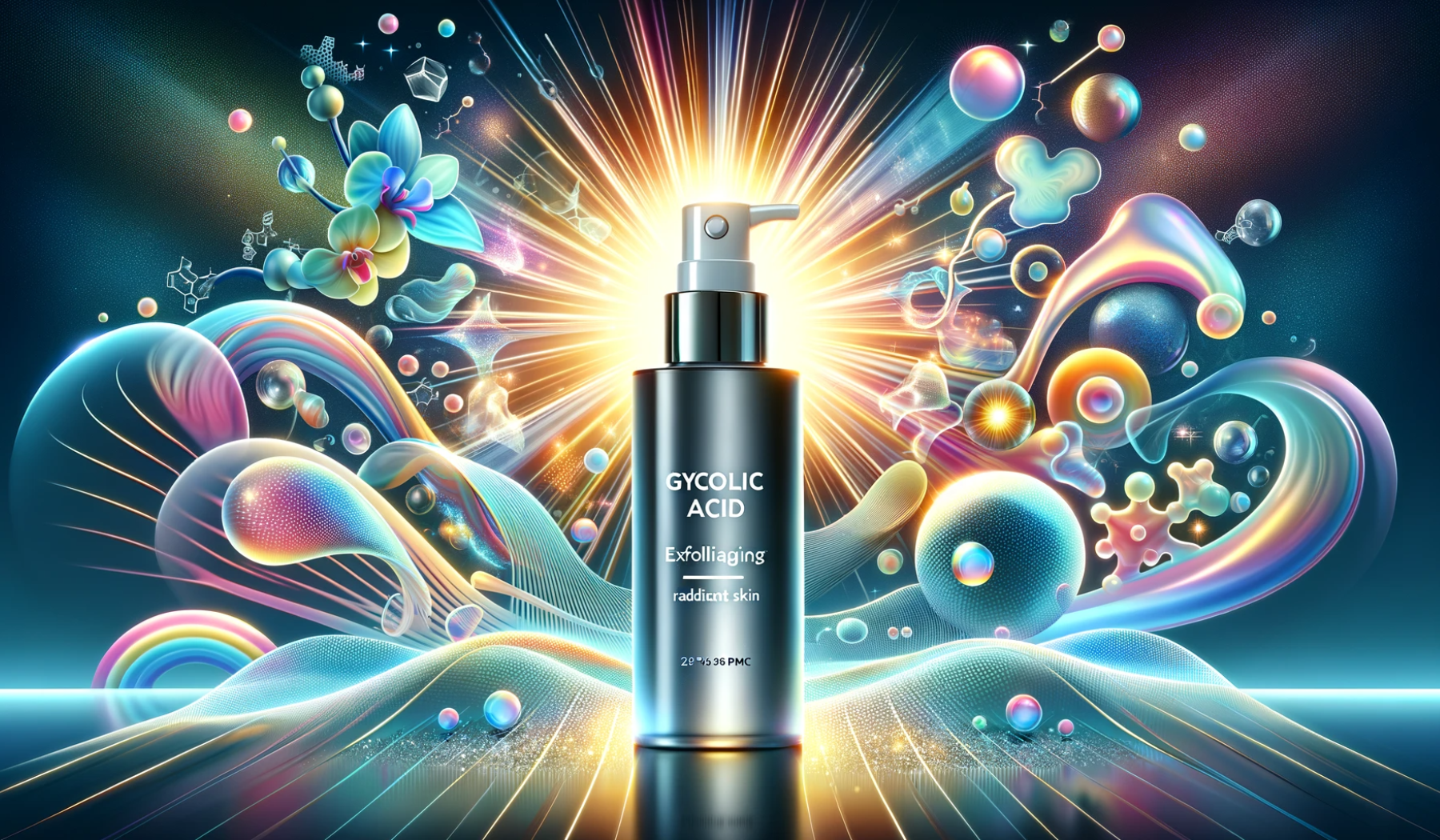Glycolic Acid: The Exfoliating Powerhouse for Radiant Skin

Introduction:
Glycolic Acid, the smallest alpha-hydroxy acid (AHA), is renowned for its exceptional ability to penetrate the skin deeply and effectively, making it a favorited among skincare enthusiasts for exfoliation. Derived from sugar cane, this powerful ingredient accelerates the removal of dead skin cells, revealing smoother, brighter, and more youthful-looking skin beneath. This guide explores the transformative benefits of Glycolic Acid and how to incorporate it into your skincare routine for maximum efficacy.
What is Glycolic Acid?
Glycolic Acid stands out in the realm of skincare for its exfoliating properties. By dissolving the bonds that hold dead skin cells on the surface, it promotes cell turnover and stimulates collagen production. Its small molecular size allows it to penetrate the skin more easily than other AHAs, making it particularly effective in improving skin texture and tone.
Key Benefits:
- Promotes Exfoliation: Encourages the shedding of dead skin cells, reducing dullness and revealing a brighter complexion.
- Reduces Signs of Aging: Diminishes the appearance of fine lines, wrinkles, and age spots by stimulating collagen production and increasing cell turnover.
- Improves Skin Texture: Regular use of Glycolic Acid can smooth rough texture, making the skin softer and more even.
- Combats Acne: Helps to clear pores and reduce the formation of acne by removing dead skin cells that can lead to clogged pores.
Incorporating Glycolic Acid into Your Skincare Routine:
- Start Slowly: Begin with lower concentrations of Glycolic Acid and gradually increase usage as your skin builds tolerance.
- Use at Night: Apply Glycolic Acid products in the evening to avoid sun sensitivity issues. Always follow up with a broad-spectrum sunscreen during the day.
- Moisturize: Glycolic Acid can be drying. Pair it with a hydrating moisturizer to maintain skin hydration.
- Patch Test: Before using a new product with Glycolic Acid, conduct a patch test to ensure it doesn't irritate your skin.
Choosing the Right Glycolic Acid Products:
Look for serums, toners, and creams formulated with Glycolic Acid. The ideal concentration depends on your skin type and tolerance, ranging from 5% for beginners to 10-20% for those accustomed to AHAs.
Precautions and Considerations:
Glycolic Acid increases skin sensitivity to the sun, making sun protection crucial. It may also cause initial irritation, including redness and peeling, as the skin adjusts. Those with sensitive skin should use it cautiously.
Sustainability and Sourcing:
Prefer Glycolic Acid products from brands that prioritize sustainable sourcing and production methods. Ethical manufacturing and packaging reflect a commitment to environmental responsibility.
FAQs:
- How often should I use Glycolic Acid? Frequency depends on the product's concentration and your skin's tolerance. Starting with once or twice a week is recommended.
- Can Glycolic Acid be used with other active ingredients?< While Glycolic Acid can be combined with certain other actives, it's best to avoid using it simultaneously with retinoids or other AHAs/BHAs to prevent irritation.
Shop Glycolic Acid
Conclusion: Glycolic Acid is a versatile skincare ingredient that offers a wide range of benefits, from exfoliating dead skin cells to reducing signs of aging. By incorporating Glycolic Acid into your skincare regimen, you can achieve a smoother, clearer, and more radiant complexion. Remember to use it wisely and protect your skin from the sun for the best results.
Disclaimer: This article is intended for informational purposes only and should not be construed as medical advice. While Glycolic Acid is effective for exfoliation and improving skin texture, its use may not be suitable for all skin types, particularly those with sensitive skin. Individuals are advised to perform a patch test before incorporating Glycolic Acid products into their skincare regimen and to use such products in accordance with the recommended guidelines. For personalized skincare advice, particularly for those with specific skin conditions or concerns, consulting with a dermatologist or skincare professional is recommended. Ghama Health does not assume responsibility for any adverse effects or dissatisfaction that may arise from the use of Glycolic Acid based on the information provided.





















